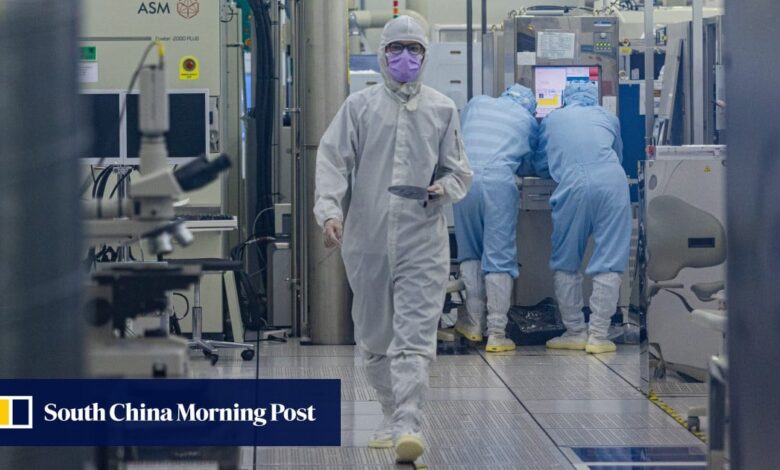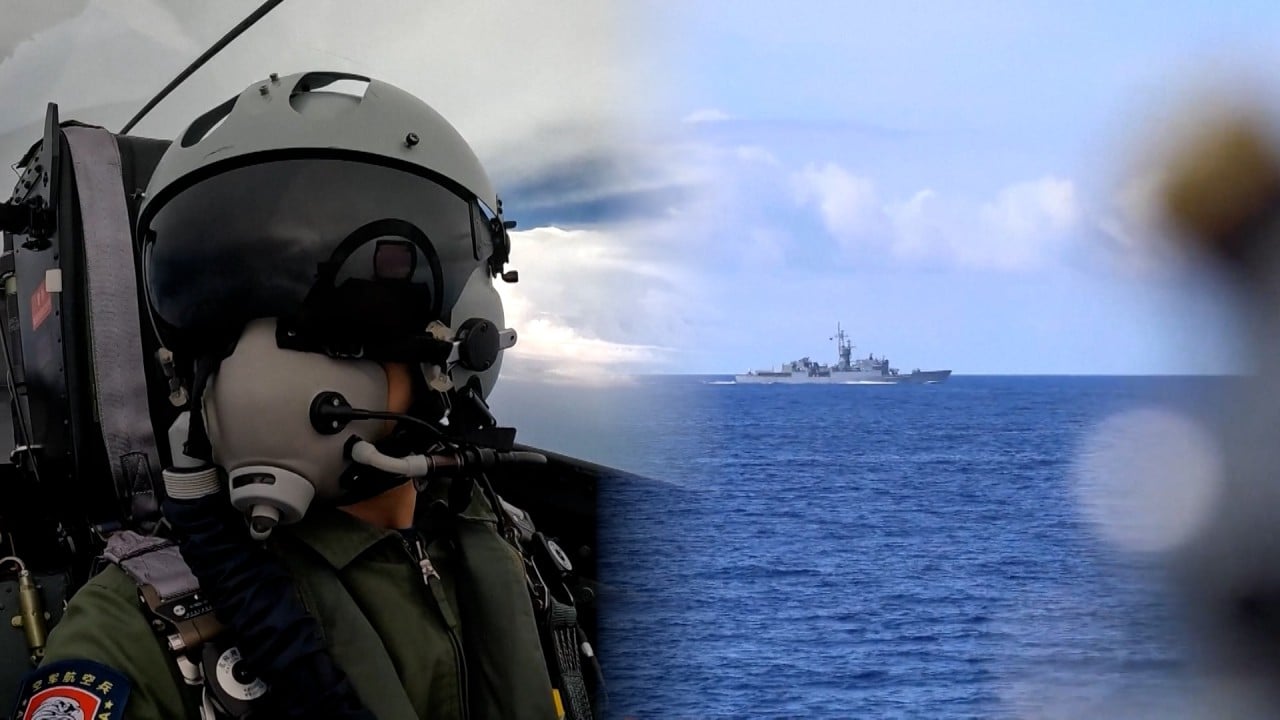Taiwan’s economic growth ability under threat with firms to shun investment as hedge against cross-strait tensions

[ad_1]
Taiwan is expected to face growing headwinds from diversification as major companies expand away from the island toward India and Southeast Asia, with global ratings agencies pointing partly at a hedge against any conflict with mainland China.
Diversification would further dent the US$820 billion-plus economy that has lost momentum over the past year amid a post-pandemic wind down in global demand for its signature consumer electronics components.
European businesses in Taiwan are examining their exposure to both the island and mainland China, extending discussion that started after the Pelosi visit, said Freddie Hoeglund, CEO of the European Chamber of Commerce Taiwan.
There’s a lot of ongoing talk about de-risking supply chains, both regarding Taiwan and China
“There’s a lot of ongoing talk about de-risking supply chains, both regarding Taiwan and China,” he said on Friday.
Mainland China sees self-ruled Taiwan as a breakaway territory that must be united with the mainland, by force, if needed.
“If concerns over geopolitics and the security situation grow, it could discourage investment in Taiwan,” S&P Global Ratings said in a commentary in April.
S&P said that it was “crucial” that Taiwan-based enterprises continued to liaise with customers in mainland China and the United States.
With mainland China not doing well, Taiwan ups South Asia, Asean investments
With mainland China not doing well, Taiwan ups South Asia, Asean investments
“The diversification of key manufacturers away from Taiwan may result in reduced future investments in the country,” S&P added.
“These developments could potentially weaken its ability to sustain above-average growth.”
Tech sector investors and some commodities firms have “reconfigured investments” away from mainland China and Taiwan over the past three years, Anushka Shah, vice-president and senior credit officer with Moody’s Sovereign Risk Group in Singapore, said on Thursday.
This is China plus one or potentially Taiwan plus one
“This is China plus one or potentially Taiwan plus one,” she said, referring to the business strategy to avoid investing only in one country and diversifying business into others.
“It’s a kind of preparation for what might occur in the future.”
In March, Moody’s gave Taiwan an Aa3 sovereign credit rating, higher than many peers in Asia, but it missed out on a rating of Aa2 or higher because of cross-strait tensions, Shah said.
Taiwan also missed S&P’s highest rating of AAA, receiving an AA+ because of geopolitical risks, said YeeFarn Phua, director for Sovereign and International Public Finance Ratings at S&P.
Taiwanese outbound investment approved by the island’s government has reached near record highs over the past three years, including US$12.6 billion in 2021, lower only than the all-time record of US$14.3 billion in 2018.
Southeast Asia, particularly Vietnam with its cheap labour and government incentives for foreign investment, has been a favoured destination for more than a decade.
It said a conflict could easily put US$127 billion in direct investment at risk.
We expect Taiwanese manufacturing to continue reshoring and nearshoring away from [mainland] China in pursuit of supply-chain resilience in the coming year
Fitch Ratings said in a commentary in August that it expected “heightened cross-strait tensions, which remain a key weakness of Taiwan’s credit profile”.
“We expect Taiwanese manufacturing to continue reshoring and nearshoring away from [mainland] China in pursuit of supply-chain resilience in the coming year,” the commentary said.
Last month, Fitch gave Taiwan a AA long-term foreign currency issuer rating with a “stable” outlook for the certainty that it will meet financial obligations made in foreign currencies, but below the AAA maximum rating.
Japan, Philippines, South Korea most open to ‘huge disruption’ of any Taiwan war
Japan, Philippines, South Korea most open to ‘huge disruption’ of any Taiwan war
Fellow Apple assembler Pegatron, which operates plants near Shanghai, opened its first Indian factory in Chennai last year at a cost of US$150 million.
Indonesia is also emerging as a possibility for expansions, Phua added.
Factory operators such as Foxconn prefer places with more land and lower costs than what Taiwan offers, he said.
And some companies, he said, are looking for “diversification of geographic locations” for reasons unrelated to geopolitical tensions.
[ad_2]
Source link





